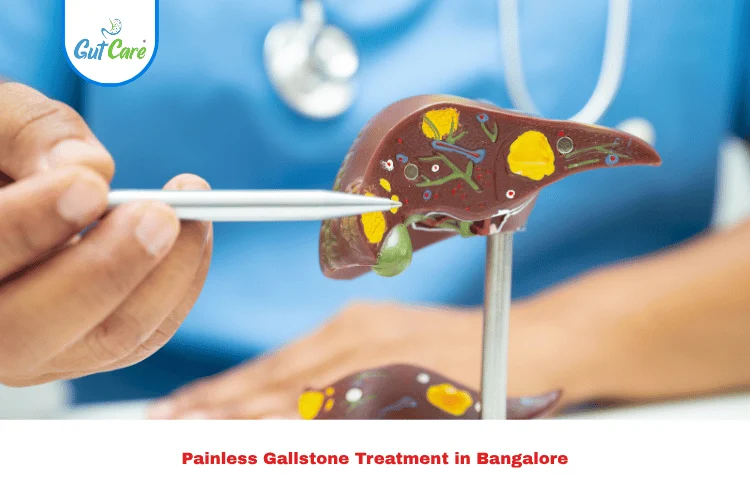Introduction
Gallstones are solid particles that form in the gallbladder, a small organ located beneath the liver. While many people with gallstones remain asymptomatic, others experience severe pain and complications. The primary treatment for symptomatic gallstones is surgery to remove the gallbladder, known as a cholecystectomy. But what happens if you delay surgery? Is it safe? Let’s explore the risks, considerations, and what you should know about delaying surgery for gallstones.
What Are Gallstones?
Gallstones are hardened deposits of bile and cholesterol that can form in the gallbladder. There are two main types: cholesterol gallstones and pigment gallstones. Most people with gallstones do not experience any symptoms, a condition known as “silent gallstones.” However, if the gallstones obstruct a bile duct or cause inflammation, they can lead to a painful condition called biliary colic.
When Is Surgery Recommended for Gallstones?
Surgery is generally recommended when a person experiences symptoms, such as:
- Severe abdominal pain (especially after eating fatty foods)
- Nausea and vomiting
- Jaundice (yellowing of the skin or eyes)
- Fever or chills (signs of infection)
- Pancreatitis (inflammation of the pancreas)
In these cases, surgery is the most effective way to prevent further complications.
Risks of Delaying Gallbladder Surgery
While delaying surgery for gallstones may seem like a viable option, it comes with certain risks. Let’s examine them:
1. Higher Risk of Complications
Postponement of surgery can result in the onset of severe complications, such as:
- Bile Duct Obstruction: Gallstones may obstruct the bile ducts, resulting in a bile backup. This may lead to jaundice, an infection known as cholangitis, and even liver damage.
- Pancreatitis: A migrating gallstone may also clog the pancreatic duct, causing pancreatitis, which can be fatal.
- Gallbladder Inflammation (Cholecystitis): If a gallstone gets stuck in the gallbladder, it may cause inflammation and infection, leading to cholecystitis. This can result in intense pain, fever, and the possibility of a ruptured gallbladder.
2. Worsening Symptoms
If you delay surgery, symptoms such as abdominal pain, bloating, and indigestion may worsen over time. Gallstones may become larger or increase in number, making treatment more complicated in the future.
3. Risk of Gallbladder Cancer
In rare cases, chronic inflammation caused by gallstones can increase the risk of gallbladder cancer. While this is uncommon, long-term untreated gallstones can lead to complications that increase the risk of malignancy.
Is It Possible to Avoid Surgery for Gallstones?
For some people, surgery may not be immediately necessary. In certain cases, non-surgical treatments may be recommended:
Medications: Some medications can dissolve gallstones, but this method is only successful for small cholesterol stones and may take months or years.
Dietary Changes: A low-fat, high-fiber diet may lower the risk of developing symptoms. This method cannot, however, remove existing gallstones or prevent future issues.
Watchful Waiting: If you have silent gallstones (asymptomatic gallstones), your physician will likely suggest wait-and-see. Surgery is usually reserved for people who develop symptoms or complications.
When Should You Seek Medical Advice?
If you have gallstones and are considering delaying surgery, it’s crucial to consult with your healthcare provider. Some signs that you should seek immediate medical attention include:
- Sudden severe abdominal pain
- Pain radiating to the back or shoulder
- Fever, chills, or jaundice
- Nausea and vomiting that do not subside
If you experience these symptoms, do not delay seeking medical attention, as they may signal a serious complication.
Conclusion
While delaying surgery for gallstones might be tempting, it carries significant risks, including complications such as bile duct blockage, pancreatitis, and gallbladder inflammation. If you are experiencing symptoms or complications, it’s important to consult your doctor promptly. For those with asymptomatic gallstones, your healthcare provider will guide you on the best course of action, which may include monitoring, medications, or lifestyle changes.
If you suspect you have gallstones or are considering delaying surgery, schedule a consultation with your doctor to discuss your treatment options and avoid potential complications.
FAQs
1. What if I postpone gallstone surgery?
Postponing gallstone surgery might raise the chances of developing serious complications such as blockage of the bile duct, pancreatitis, inflammation of the gallbladder (cholecystitis), and uncommonly, cancer of the gallbladder.
2. Can I prevent gallstone surgery?
In a few situations, drugs can dissolve smaller cholesterol gallstones, and changes in diet may prevent symptoms. Still, surgery is usually the best course of action to treat symptomatic or complicated gallstones.
3. When do I get medical care for gallstones?
Immediately seek medical care if you have severe belly pain, fever, chills, jaundice (yellowing of skin and eyes), or nausea and vomiting that worsen. These may indicate complications.
4. What are the options besides gallbladder surgery?
Drugs that help break up gallstones, diet, and waiting are options for people with asymptomatic gallstones. Surgery is generally needed, though, if complications occur.
5. What are the risks of postponing gallstone surgery?
The most important risks are severe pain, bile duct obstruction, pancreatitis, infection, and a potential risk of gallbladder cancer with chronic inflammation.




